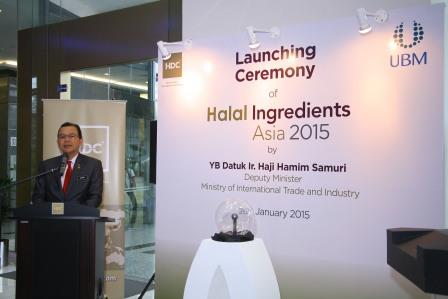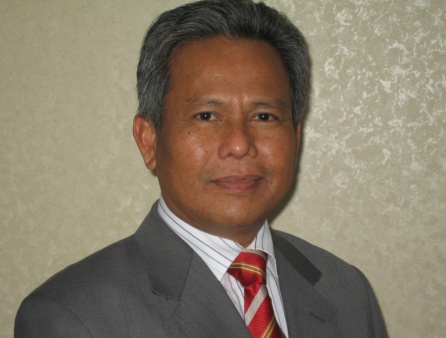THE GLOBAL Halal industry continues to grow, spurred by the rising Muslim population and the expanding market it represents. Muslims will number 2.2 billion by 2030, according to Pew Research Center’s Forum on Religion & Public Life. Based on current demographic trends, their population will reach 2.8 billion by 2050. In Southeast Asia alone, there are 225 million Muslims, noted the ASEAN Information Center.
Southeast Asia is increasingly regarded as an emerging force in this industry. Its strengths as a major production base for Halal products lie in having a substantial indigenous Muslim population and strong connections to global Muslim markets. It is also a stable location for foreign investment.
The availability of raw materials would also benefit food processors in the region.
Strong support in Thailand
Thailand is the sixth largest Halal food exporter in the world, according to the ASEAN Information Center. Backed by a robust agricultural sector, the country aims to boost its exports of Halal food products.
Thailand’s domestic Halal food sector has been expanding by 20% a year. More than 25% of the 30,000 food factories in the country, or some 8,000 facilities, are currently engaged in Halal food production. Pattani, one of the southern border provinces, is being developed into a Halal industrial center.
Outside of the food industry, Thailand has also been offering Halal products and services, including those for the tourism and hotel industries. Healthcare services have also been expanding to keep pace with the rising number of customers from the Middle East.
Malaysia strengthening Halal industry
Malaysia is positioned as a key market for Halal products. Dato’ Dzulkifli Mamud, deputy CEO of the Malaysia External Trade Development Corporation (MATRADE), stated in an exclusive interview with the Food Pacific Manufacturing Journal that Malaysia’s Halal industry is well established and not limited to industrial products based on food and drink. It also covers pharmaceuticals, cosmetics, healthcare, packaging, logistics, banking and finance, food processing and packaging machinery, tourism, and other fields in the Halal ecosystem.
Among the big players in the country are Nestlé, Unilever, Indofood, Ajinomoto, KFC Holdings, CCM Pharmaceuticals, Mamee, Munchies, and Adabi Consumer industries.
The government is encouraging local SMEs to eye a share of the global Halal food and nonfood industry estimated at US$790 billion annually. Nonfood Halal products cover healthcare items, cosmetics, hotel and catering, and other services.
The Ministry of International Trade and Industry (MITI) estimates Malaysia’s Halal exports as of end-2014 at RM10 billion. The country is developing and improving various infrastructures such as Halal industrial parks, R&D and testing laboratories, traceability system, and standards and certification system to boost the industry.
MITI minister Datuk Seri Mustapa Mohamed said the economy would benefit from the entire Halal market estimated at more than US$2.3 trillion a year. He noted only 20% of the demand for Halal food and nonfood products could be met globally. “With 80% of the market left to be explored, SMEs must grab the opportunities by improving the quality of their products to meet the standard required to break into the international market,” he said at the SME Mentoring Program Awards Ceremony recently held in Kuala Lumpur.

At the launching ceremony of Halal Ingredients Asia 2015, YB Datuk Ir. Haji Hamim Samuri, deputy minister 1 of the Ministry of International Trade and Industry, said that more research and development should be conducted on Halal ingredients such as enzymes, emulsifiers and flavorings (Photo: UBM Malaysia)
The Halal ingredients sector, in particular, is a key growth area. According to Datuk Ir Haji Hamim Samuri, MITI deputy minister I, exports of Halal ingredients for 1H14 represented more than 30% of total Halal shipments.
“For the first half of 2014, exports of Halal products recorded from certified companies was RM18.8 billion, of which Halal ingredients was RM6 billion,” Mr Samuri said during the prelaunch of Halal Ingredients Asia 2015, which will be held from September 22 to 23 at the Kuala Lumpur Convention Center.
Mr Samuri said that Halal ingredients, which comprise compliant raw materials or commodities, substances, and components in both finished and semifinished product forms and made using permissible sources, should be an R&D focus area. Food emulsifiers, flavorings, and enzymes are in great demand by manufacturers.

Deputy CEO of the Malaysia External Trade Development Corporation Dato’ Dzulkifli Mamud said that the country is developing and improving infrastructures such as Halal industrial parks, R&D and testing laboratories, and its traceability systems and standards and certification systems, to boost the industry
Mindanao as Halal production base
Unknown by many, Mindanao in the southern part of the Philippines is being groomed as a major manufacturing base for export-quality Halal products in the country.
The Department of Science and Technology Region 12 currently operates a Halal laboratory in Cotabato City. It is also building a larger state-of-the-art laboratory facility in Koronadal City. The center, which will be called the Philippine National Halal Laboratory and Science Center, will serve as the clearinghouse of Halal products coming in and out of the country.
The proposed Philippine Halal Act of 2015 specifically lays out the platform for developing Mindanao as the country’s Halal capital. Senator Cynthia Villar, who rallies for support for Senate Bill (SB) No. 312 for the institutionalization of regulatory policies and accreditation standards for Halal products in the country, said Mindanao is strategically located and can cater not just to the Philippines but also to the rest of the world.
“The region is already positioned as the Halal production center of the country and gateway to neighboring countries Indonesia, Malaysia, and Brunei,” she said in her official website.
Easy access to raw materials and a huge Muslim population currently estimated at about 4 million also contribute to Mindanao’s strengths as a top Halal production base.
Ms Villar, who chairs the Senate Committee on Agriculture and Food and will sponsor the bill’s passage before the Senate’s plenary, said that when passed, the law will enable Mindanao to produce Halal-certified products. The law will also pave the way for the establishment of a credible national Halal certification or accreditation board.
Overcoming challenges
Notwithstanding rising interest around the world among consumers, manufacturers, and other industry players, the market remains fraught with roadblocks.
According to Mr Mamud of MATRADE, the need to establish one global Halal standard is currently the most pressing issue within the industry.
“The definitions of Halal, while generally agreed upon by Muslims, display significant gaps when it comes to their application in the industry. Due to differences in Halal standards not only between countries but also within each country, confusion, misunderstanding, and even abuse in the Halal logo could happen. There is plenty at stake for the Halal industry. The revocations of Halal certificate could easily translate into loss of revenue for manufacturers,” Mr Mamud said.
The lack of consensus on a Halal standard and use of country-specific certification standards causes disagreements over animal feed, slaughtering methods, packaging, logistics, and other issues. They create problems for companies when trading globally because an exporting country’s Halal standard might not comply with the importing country’s standard.
Finding a middle ground or mutual understanding on the minimum core standard or zero tolerance that all stakeholders can agree upon such as in pork and alcohol would be a good start, stated Mr Mamud.
Mustafa Adil, head of research and product development for Islamic finance at global intelligence firm Thomson Reuters, noted the need to obtain separate Halal certification for exporting to different countries as the biggest hindrance to companies that want to export. He said in an interview with The Brunei Times that the biggest bottleneck to the growth of Islamic economies such as Brunei involves whether or not a certification for Syariah-compliant products is accepted across markets.
Legislative Council Member YB Dato Paduka Hj Abdullah Hj Mohd Jaafar said that the Brunei Halal certificate is not recognized in countries outside of MABIMS (Informal Meeting of Religious Ministries of Brunei, Indonesia, Malaysia and Singapore).
Industry stakeholders in the Philippines emphasize the need for a reliable and credible certifying body to ensure product competitiveness.
SB 312 calls for the establishment of a centralized Philippine Halal Accreditation and Regulatory Board to oversee the “formulation, drafting, management, and implementation of programs relevant to manufacturing, production, distribution, preparation, handling, storage, and verification of Halal approved food, nonfood merchandise and services” in the country.
Haja Shayma Zenaida Laidan, director of the Department of Science and Technology Region 12, said that the Philippines seeks product compatibility with the Muslim bloc’s standards to penetrate the global market.
The country hopes to be the first non-Muslim country to adopt harmonized Halal standards set by the OIC. DOST-12 received the OIC-Standards and Metrology Institute of Islamic Countries (SMIIC) guidelines during the recently concluded Philippine Halal Assembly in Metro Manila. The SMIIC’s Halal standards are in the final stages of completion and are expected to be adopted across its 57 member-states.
“The OIC-SMIIC is a big organization, second to the United Nations. If you can just imagine that, 57 countries who will be buying your product. You can penetrate these 57 Islamic countries’ market,” Ms. Laidan said.
Meanwhile, MITI’s Mohamed outlined three main challenges for the Halal economy in his speech at the World Halal Conference 2015 held last April in Kuala Lumpur. “The first challenge that we will need to address is to continue developing international collaboration between nations in the promotion of Halal products across borders,” he said.
This collaboration includes correcting the perception that Halal food and products should target only Islamic nations. With Muslims spread around the world, the market for Halal products must be global and not limited to certain specific countries.
---
References:
http://Halalfocus.net/20899/
http://www.cynthiavillar.com.ph/mindanao-seen-as-major-production-base-for-export-Halal-products
http://www.mindanews.com/top-stories/2015/03/04/mindanao-seen-as-major-production-base-for-export-Halal-products/
http://ewt.prd.go.th/ewt/asean/ewt_news.php?nid=41&filename=index
http://en.prnasia.com/story/114059-0.shtml
http://asia.nikkei.com/Business/Consumers/Southeast-Asia-becoming-global-hub-for-Halal-foods
Air Jordan Spizike 3.5
 iConnectHub
iConnectHub
 Login/Register
Login/Register Supplier Login
Supplier Login



























